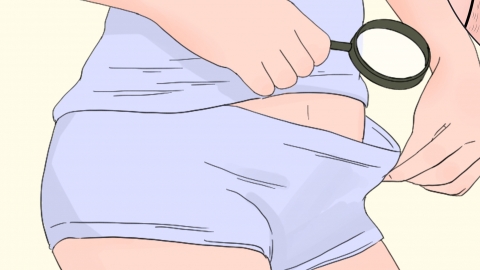What causes clitoral pain?
Generally, clitoral pain may be caused by mechanical friction, excessive stimulation, clitoritis, vulvitis, or genital herpes. If abnormalities occur, timely medical attention is recommended. Detailed analysis is as follows:

1. Mechanical friction: Wearing tight synthetic underwear, frequent cycling, or engaging in strenuous exercise can cause repeated mechanical friction to the clitoral area, leading to local tissue congestion and sensitivity, which results in pain. It is advised to switch to loose, breathable cotton underwear and avoid prolonged cycling and strenuous activities.
2. Excessive stimulation: Excessive stimulation of the clitoris during sexual activity or frequent use of irritating cleansing products can damage the clitoral mucosa, causing pain. Stimulating activities should be paused, and the external genitalia should be cleaned with mild water. Avoid using irritating cleansers to allow the local mucosa sufficient time to rest and recover.
3. Clitoritis: Bacterial or fungal infection of the clitoris may cause local inflammatory reactions, resulting in redness, swelling, and pain of the clitoris, accompanied by symptoms such as itching and increased secretions. Doctors may prescribe medications such as potassium permanganate solution, metronidazole gel, or clotrimazole cream to reduce the inflammatory response.
4. Vulvitis: Inflammation caused by pathogen infection or irritation of the vulvar skin and mucous membranes may spread to the clitoral area, causing clitoral pain along with symptoms such as redness, swelling, and itching of the vulva. Doctors generally recommend using povidone-iodine solution, erythromycin ointment, or traditional Chinese medicine such as Fuke Qianjin tablets to relieve pain.
5. Genital herpes: Herpes simplex virus infection of the genital area leads to local inflammation and blisters due to viral replication, causing severe pain, accompanied by clustered blisters and fever. Patients may use acyclovir tablets, valacyclovir dispersible tablets, or penciclovir cream under medical guidance to inhibit viral replication.
In daily life, maintaining cleanliness and dryness of the vulva, avoiding irritating cleansing products, and choosing loose, breathable underwear are recommended. If clitoral pain persists or is accompanied by other discomforts, timely medical consultation is necessary to identify the cause and initiate targeted treatment.









